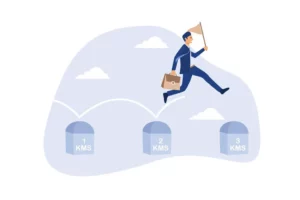Let’s be honest, who doesn’t love to be rewarded? Especially in the workplace, recognition can play a vital role in boosting employee morale and productivity. This is where a point reward system for employees comes into play. In this guide, we’ll explore the nitty-gritty of a point reward system and its importance in an organization.
Contents
What is a Point-Based Reward System?
 A point-based reward system, as the name suggests, operates on the principle of awarding points to employees based on their performance, behavior, or achievement of certain milestones. Each employee’s accumulated points can be redeemed for various rewards that the company has predefined. These rewards can range from tangible items like gift cards or merchandise to experiences like a lunch with the CEO, or even paid leave days.
A point-based reward system, as the name suggests, operates on the principle of awarding points to employees based on their performance, behavior, or achievement of certain milestones. Each employee’s accumulated points can be redeemed for various rewards that the company has predefined. These rewards can range from tangible items like gift cards or merchandise to experiences like a lunch with the CEO, or even paid leave days.
For instance, you can award points when an employee achieves a sales target, finishes a project ahead of the deadline, maintains perfect attendance, or contributes positively to the workplace environment. By implementing such a system, you cultivate a workforce that is not only more engaged and productive but also happier.
The Importance of an Employee Point Reward System
Ever heard the saying, “You get what you reward for”? It means your team will gravitate toward the behaviors you reward. The benefits of such a system are manifold, as they extend far beyond the immediate gratification employees receive from being rewarded for their efforts.
- Higher Employee Engagement – Point reward systems are more than just a mechanism to appreciate hard work. They’re strategic tools that can heighten employee engagement levels significantly. When employees know their efforts are being acknowledged and rewarded, they’re more likely to invest their full energy and focus into their tasks.
- Enhancing Productivity – Productivity and engagement often go hand-in-hand. If your employees feel valued, they’re likely to put in more effort, resulting in increased productivity levels.
- Attracting and Retaining Top Talent – An attractive rewards system plays a crucial role in talent acquisition and retention. Potential employees may be drawn to a company that implements a comprehensive point reward system, as it indicates a culture of recognition and appreciation.
- Boosting Employee Morale – There’s no denying the impact of recognition on employee morale. When employees feel their work is valued and acknowledged, their job satisfaction significantly improves.
- Increases Job Satisfaction – Rewarding employees for their work can greatly enhance job satisfaction. This, in turn, can reduce turnover rates and foster a positive working environment.
Types of Reward Points To Offer To Your Employees
 Reward points systems can be as diverse as the companies that implement them. These systems can be tailored to the specific needs and objectives of each organization, resulting in a variety of point types and redemption methods. Here are a few examples of the types of reward points that a company might use:
Reward points systems can be as diverse as the companies that implement them. These systems can be tailored to the specific needs and objectives of each organization, resulting in a variety of point types and redemption methods. Here are a few examples of the types of reward points that a company might use:
- Performance-Based Points: These points are awarded to employees who meet or exceed specific performance metrics. This could include meeting sales targets, reducing production costs, or exceeding customer satisfaction ratings.
- Cash-based Rewards: This type of reward system involves providing employees with monetary compensation. These might include bonuses or salary increases, based on their performance or contributions.
- Team-based Rewards: These rewards focus on the collective achievements of a team or department, rather than individual performance. Examples could include team bonuses or recognition for meeting specific team goals.
- Behavior-Based Points: These points are given to employees who exhibit desired behaviors. This could involve demonstrating teamwork, showing initiative, or even maintaining punctuality.
- Milestone-Based Points: These points are rewarded when an employee reaches a significant milestone. This could be a work anniversary, completion of a project, or reaching a personal development goal.
- Peer-to-Peer Points: These points are given by employees to their peers. This method encourages a culture of appreciation and recognition within the team and allows employees to acknowledge each other’s contributions.
Ways To Redeem Points
 Companies usually have a variety of options for employees to redeem their earned points. Here are a few popular methods:
Companies usually have a variety of options for employees to redeem their earned points. Here are a few popular methods:
- Company Merchandise: Employees can redeem their points for company-branded merchandise. This could include anything from T-shirts and mugs to more high-end items like laptops or headphones.
- Gift Cards: These are always a popular choice. Employees can choose from a range of retailers, allowing them to pick something that they genuinely want or need.
- Experiences: Some companies offer the opportunity to exchange points for experiences. This could include team outings, lunch with the CEO, or even a day off work.
- Charitable Donations: For those who prefer to give back, some companies allow employees to convert their points into charitable donations.
- Training and Development Opportunities: Employees can also redeem their points for additional training and development opportunities. This can help them improve their skills and advance in their careers.
Strategies To Set Up an Effective Point Reward System
Setting up an effective point reward system may seem challenging, but with a strategic approach, you can create a program that motivates your employees. Here are a few strategies to consider:
- Understand Your Employees’ Preferences
Before you even begin designing the system, take the time to understand what kind of rewards your employees would appreciate most. This could involve conducting a survey or hosting a brainstorming session with your team. Remember, one size doesn’t fit all – what motivates one person might not work for another.
- Set Clear Criteria
Clarity is crucial when setting up a point reward system. Make sure you clearly define the criteria for earning points. Whether they’re based on performance, behaviors, or milestones, the expectations should be clear and transparent. This will help eliminate any potential confusion or feelings of favoritism.
- Choose Appropriate Rewards
The rewards you offer should be relevant and desirable. They should also be proportional to the effort required to earn them. A balanced reward system will offer a mix of small, medium, and large rewards to cater to different levels of achievement.
- Communicate Effectively
Once your system is in place, make sure to communicate it effectively to all employees. Everyone should understand how the system works, how to earn points, and how to redeem them for rewards. Regular updates about the program, including who’s earning points and how they’re using them, can also help keep the system top of mind.
- Keep the System Flexible
Finally, keep in mind that your point reward system doesn’t have to be rigid or unchangeable. As your organization grows and evolves, be ready to make necessary adjustments to the system based on employee feedback and changing business needs. This flexibility will help ensure the system continues to motivate and engage your employees over time.
Conclusion
In conclusion, a point reward system plays a pivotal role in an organization, contributing significantly to employee engagement, productivity, morale, and satisfaction. By implementing this system, you acknowledge your employees’ efforts and motivate them to push their boundaries further, creating a positive and productive work environment.
Remember, a well-implemented point reward system is more than just a mechanism for rewarding employees – it’s a powerful tool that can boost your organization’s overall performance and success. Therefore, adapting and adjusting your system over time to align with your evolving organizational goals and employees’ feedback will help keep your point reward system relevant and effective.
Employee wellness programs are the key to improving employee motivation, productivity, and retention. At MantraCare, we have a team of health experts, counselors, and coaches who serve corporate employees with 10+ well-being programs including EAP, Employee Diabetes Reversal, Corporate MSK, Employee Fitness, Corporate Yoga, and Employee Meditation.
